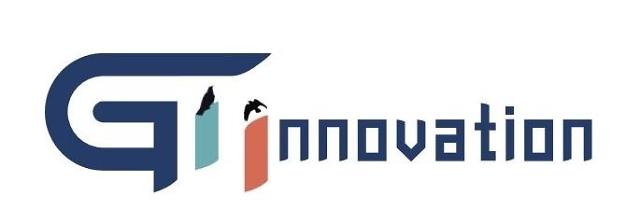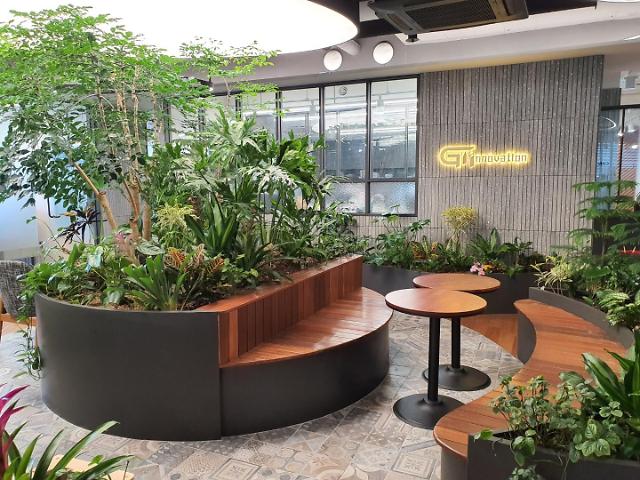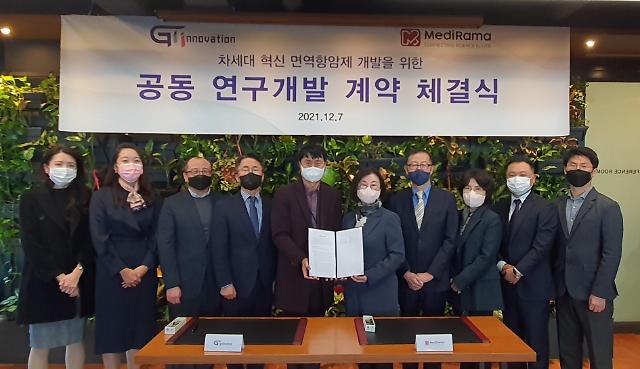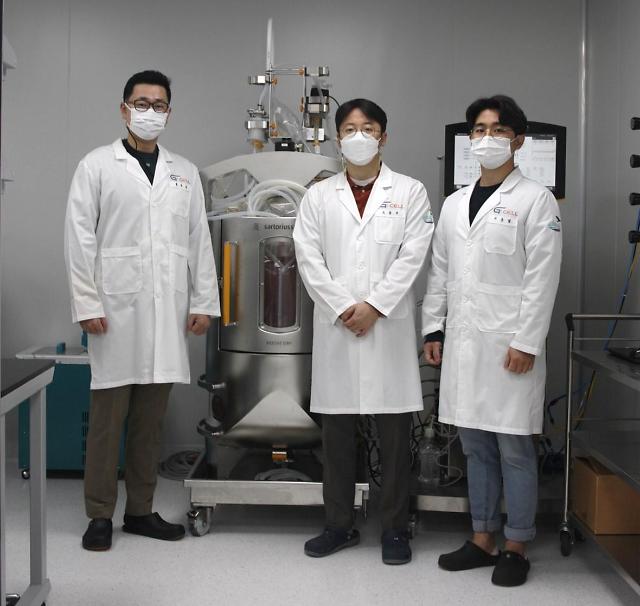
[Courtesy of GI Innovation]
SEOUL -- GI-101, an immunotherapy agent being developed by South Korea's bio-venture company GI Innovation, has been selected for a government-initiated drug development program to receive financial support at clinical stages.
GI Innovation said it would get up to seven billion won ($5.5 million) in research support for two years from the Korea Drug Development Fund (KDDF), which supports the investment, nurture and development of promising drugs. KDDF's move is seen as a symbolic recognition of GI Innovation's technological prowess.
Through cooperation with Severance Hospital professors, GI Innovation vowed to increase the possibility of clinical success by selecting optimal indications in Phase 1 and 2 clinical trials to move into the next stage of clinical trials or transfer technology. By February 2024, the company would speed up its search for a single therapy as well as effective combination therapies and indications.
GI Innovation founder Jang Myoung-ho said KDDF's move would help accelerate a clinical study on GI-101, a novel triple-targeting bispecific fusion protein. "Through clinical trials, we will speed up the early transfer of technology to global pharmaceutical companies," he said in a statement on May 9.
GI Innovation thinks that GI-101 can replace first-generation immune checkpoint inhibitors as a monotherapy or in combination with chemo or radiotherapies as well as other immunotherapies. The company has signed a joint clinical trial agreement with Merck Sharp & Dohme (MSD), an American pharmaceutical company, and AstraZeneca, a British-Swedish company, for the supply of Keytruda and Imfinzi for combination therapies with GI-101, respectively.
Pembrolizumab, sold under the brand name Keytruda, is a humanized antibody used in cancer immunotherapy. Imfinzi (durvalumab) is an immunotherapy for cancer, developed by Medimmune and AstraZeneca. GI Innovation aims to obtain preliminary results from a first and second-stage clinical study on GI-101 as monotherapy and combination therapy with Keytruda.
Copyright ⓒ Aju Press All rights reserved.




View more comments